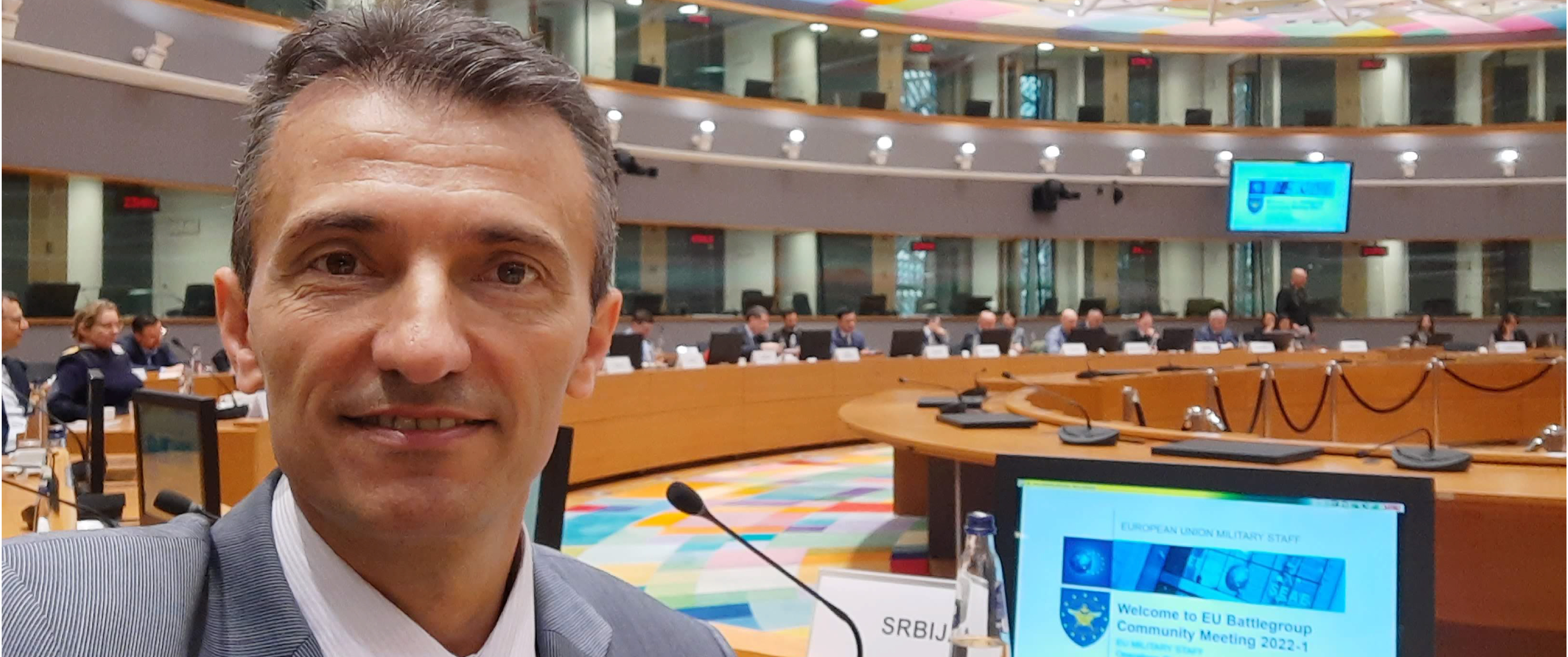An opportunity to connect with professionals from other nations – Voices of NISC (Serbia, 2006)

An opportunity to connect with professionals from other nations – Voices of NISC (Serbia, 2006)
The NISC director, and the whole academic and administrative staff, did their best to engage us fully in understanding the ongoing world crisis and security issues in a neutral and non-biased way.
This year, our New Issues in Security Course, known as the NISC, celebrates its 25th anniversary! For a quarter of a century, we’ve been providing security policy professionals with the tools to tackle new and re-emerging security challenges arising from a rapidly changing global environment. As we celebrate this milestone, we collected stories from our NISC alumni who reflected on how the course has made an impact on them – personally, professionally, and globally.
How did the NISC shape your perspective on peace and security?
Dusan Mihailovic: It was long ago when I did the NISC in 2006, as a young Air Force Major, but it was one of the main cornerstones of the second part of my military career, after serving for 13 years in the Serbian Air Force as a fighter pilot. Some months right before the course, I started building my career as a military intelligence analyst and the NISC broadened my knowledge of the global security landscape and helped me to improve my personal skills by working in an international environment. The then NISC director, Ms Rama Mani, and the whole academic and administrative staff were doing their best to engage us fully in understanding the ongoing world crisis and security issues in a neutral and non-biased way. And we actually did engage! Sure, there were tough moments, when two completely opposite standpoints on the topic were presented by the people present in the room. But this eventually was very sobering for us, teaching us that the 'other side' actually has a right to its own point of view, too, and that dialogue is the only right way of resolving the crisis (in order to avoid violence and destruction, which usually both sides had used in the past many times unsuccesfully and the problem persisted). Really understanding the crisis and the threat, objectively and from different points of views, increases the ability to foresee and and increases the accuracy of forecasts. This lies at the core of the intelligence business. Of course, when I was taking the NISC at the time I couldn't fully grasp this, but years later, I can clearly see the immense value of that great course.
Is there a particular moment, project, or initiative you're proud of that connects back to what you learned during the course?
Dusan Mihailovic: An important aspect of the NISC was its social role and opportunity to globally connect with professionals from other nations. Other then expanding my knowledge of other nations' cultures and backgrounds in general, I also learned the importance of networking and have made extensive use of the connections I built during my NISC time. This proved extremely helpful during my diplomatic missions in Greece (2012-2015) and Belgium (2019-2023), where I was appointed as Serbian Defence Attaché. I found the GCSP Belgium Alumni Hub to be a great resource for networking and collaboration among alumni, during my time in Belgium.
Dusan Mihailovic is an alumnus of the 2006 NISC course. He’s a retired supersonic military fighter pilot and military intelligence analyst with 35 years of experience. During his military career, he underwent professional training at several renowned institutions: the Defence Intelligence Agency (USA), the Naval Postgraduate School (USA), NODEFIC (Norway), the US George C. Marshall Center for European Security Studies (Germany), and the Diplomatic Academy of the Serbian Ministry of Foreign Affairs. He previously served as Serbian Defence Attaché in Greece from 2012 to 2015 and as the Serbian Military Representative to NATO & the European Union in Brussels from 2019 to 2023. He is currently engaged as a senior instructor at the Serbian Aviation Academy in Belgrade.
